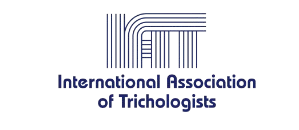
What Is Trichology? Understanding the Science of Hair and Scalp
Trichology is the scientific study of the hair and scalp, focusing on understanding the biology, diseases, and disorders that affect them. While many people are familiar with dermatology as a branch of medicine dealing with skin, trichology specifically hones in on hair health, hair loss, scalp conditions, and how to treat these issues effectively. It bridges the gap between medical science and cosmetic care, providing specialized knowledge that benefits millions worldwide.
A trichologist is a professional trained to assess hair and scalp health, diagnose problems, and recommend appropriate treatments. Unlike general beauticians, trichologists study anatomy, physiology, and pathology related to hair growth cycles, hair shaft structure, scalp conditions, and nutritional factors. Their goal is to identify the root causes of hair problems such as thinning, baldness, dandruff, itching, and excessive oiliness, rather than just addressing surface symptoms.
The science of trichology involves examining the hair follicle, scalp environment, and overall health factors that influence hair quality. Factors such as genetics, hormonal imbalances, diet, stress, and environmental exposure all play a role in hair and scalp conditions. By understanding these elements, trichologists can offer tailored advice, from topical treatments and scalp therapies to lifestyle changes that promote healthy hair growth.

Trichology is also continually evolving, with ongoing research and education improving diagnostic tools and treatment methods. Professional trichologists often work closely with dermatologists, endocrinologists, and nutritionists to provide holistic care. This collaborative approach ensures clients receive comprehensive support for their hair and scalp concerns.
In essence, trichology empowers individuals with knowledge and solutions for maintaining healthy hair and scalp. Whether you are experiencing hair loss or simply want to optimize scalp health, consulting a certified trichologist can be the first step toward lasting confidence and well-being.


